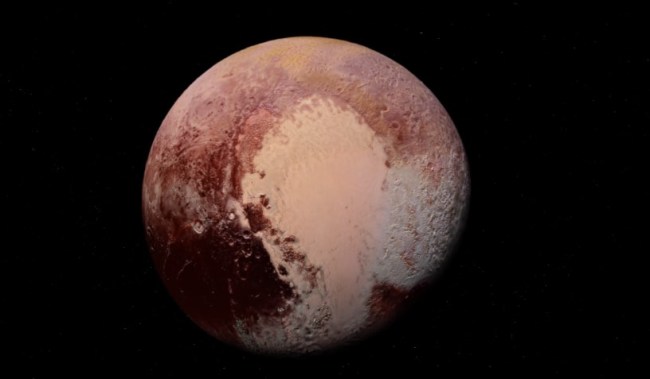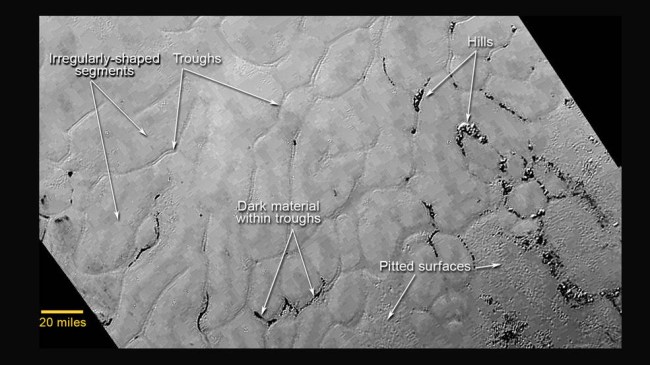It’s been a tough few weeks for Pluto. First, astronomers uncovered evidence that there might be a massive ghost planet hidden in our solar system and they totally disrespected Pluto by naming it “Planet Nine.” Now, there are scientists claiming that Pluto might just be one gigantic comet.
New scientific research suggests that Pluto was formed by the “agglomeration of roughly a billion comets.” Southwest Research Institute (SwRI) in San Antonio, Texas, developed this fascinating theory by utilizing data from NASA’s New Horizons and European Space Agency’s (ESA) Rosetta missions.
Based on chemistry, scientists believe they have uncovered how Pluto formed at the edge of our solar system. “We found an intriguing consistency between the estimated amount of nitrogen inside the glacier and the amount that would be expected if Pluto was formed by the agglomeration of roughly a billion comets or other Kuiper Belt objects similar in chemical composition to 67P, the comet explored by Rosetta,” said Chris Glein, a scientist at the Southwest Research Institute.
The “giant comet” theory is based on the nitrogen-rich ice in Pluto’s Sputnik Planitia, an ice-covered basin of about 650 miles by 500 miles in Tombaugh Regio region, which is the largest bright surface feature on the dwarf planet and features 11,000-foot-high mountains made of water ice.
“Our research suggests that Pluto’s initial chemical makeup, inherited from cometary building blocks, was chemically modified by liquid water, perhaps even in a subsurface ocean,” Glein said.
From Space.com:
Scientists needed to understand not only the nitrogen present at Pluto now — in its atmosphere and in glaciers — but also how much of the volatile element potentially could have leaked out of the atmosphere and into space over the eons. They then needed to reconcile the proportion of carbon monoxide to nitrogen to get a more complete picture. Ultimately, the low abundance of carbon monoxide at Pluto points to burial in surface ices or to destruction from liquid water.
With an intriguing origin story of a billion comets, maybe Pluto will finally get some respect for once.
[Space]

